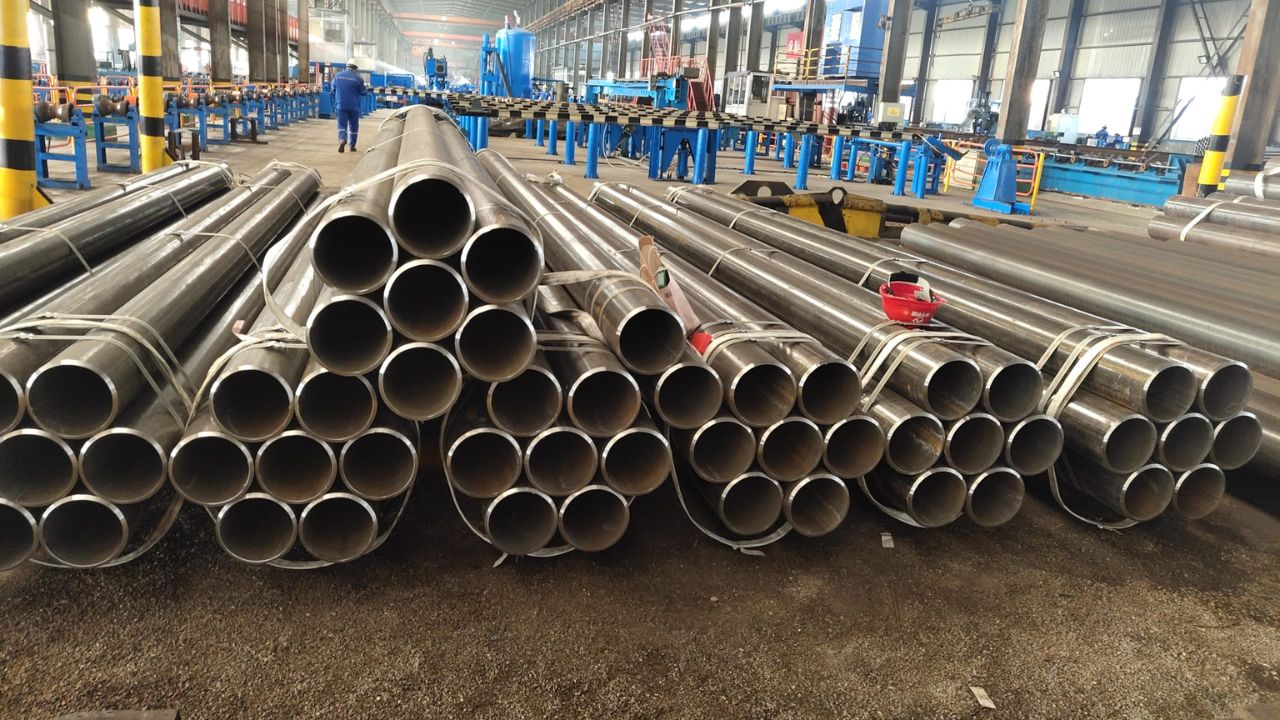Modern construction projects depend heavily on material selection to achieve structural stability long-term durability and economic outcomes. Electric Resistance Welded (ERW) pipes have become fundamental materials for the construction industry. The combination of distinctive properties with improved manufacturing methods establishes ERW pipes as fundamental elements for multiple applications. For more details, visit https://www.tuspipe.com/products/erw-pipe/.
Overview of ERW Pipes
The manufacturing of ERW pipes occurs through a production method that involves electric resistance welding of steel sheets or strips. ERW pipes differ from other pipe types because they need no filler material during production which results in a single continuous bond with uniform thickness across the entire pipe. The manufacturing process creates lightweight yet strong products that satisfy requirements for contemporary construction needs.
Key Characteristics of ERW Pipes
The popularity of ERW pipes in construction stems from their distinct characteristics:
Durability and Strength
ERW pipes demonstrate outstanding tensile strength together with excellent resistance to deformation. Excelling under high-pressure and mechanical stress situations makes ERW pipes ideal for pipeline and scaffolding applications.
Cost-Effectiveness
ERW pipes cost less than seamless pipes because their manufacturing process operates with higher efficiency. The economical nature of these tubes provides wide accessibility through large-scale infrastructure construction work despite meeting established quality requirements.
Precision and Uniformity
Electric resistance welding produces pipes with uniform diameters and thickness through its manufacturing process. The standard dimensions allow for easier pipeline installation while maintaining partnerships with different building components.
Corrosion Resistance
Engineers apply zinc and epoxy coatings to various ERW pipes to achieve enhanced corrosion resistance that improves product longevity. The feature offers particular advantages in extreme weather conditions and harsh environments during project execution.
Applications of ERW Pipes in Construction
ERW pipes demonstrate broad versatility which enables their use in multiple construction sectors.
Water Supply and Drainage Systems
ERW pipes serve as standard components for water distribution networks as well as drainage pipelines. URG pipes deliver leak-proof performance under high water pressure making them the perfect selection for modern city infrastructure.
Structural Frameworks
The combination of high strength and lightweight characteristics in ERW pipes enables their use in bridge construction building frameworks and industrial facility structures. The uniform design of these pipes allows simple construction methods while improving structural stability.
Conveyance of Gases and Fluids
Oil and gas companies use ERW pipes primarily for conveying petroleum products because of their reliability in carrying fluids and gases during transport. The combination of internal pressure resistance with environmental factor tolerance delivers safety and reliability to these pipes.
Fencing and Guardrails
ERW pipes find applications in boundary structure development including fences and guardrails. Earth-resistant welded pipes maintain exceptional durability and corrosion resistance to deliver reliable structures for all outdoor environments.
Advantages of ERW Pipes over Traditional Alternatives
An increasing number of construction projects select ERW pipes instead of seamless or welded pipes as their modern design material of choice. ERW pipe manufacturing enables precise customization which produces specialized pipe dimensions that match construction needs. ERW pipe production economies create budget-friendly costs that benefit price-sensitive projects. The light weight of these pipes decreases both transportation expenses and handling expenses which leads to additional savings.
Contribution to Sustainability in Construction
The managing director acknowledges the growing importance of sustainability in construction where ERW pipes function as key environmental impact reducers. The production of ERW pipes requires less energy input than alternative pipe manufacturing methods. The main material in ERW pipes consists of steel which can be recycled thus following sustainable development principles of circular economy. ERW pipes offer extended operational life spans which reduces replacement requirements thereby lowering waste total and resource utilization. ERW pipes provide companies using them with substantial ecological value for sustainable development projects in construction.
Future Prospects of ERW Pipes in Construction
ERW pipes will maintain their essential role in the construction sector because of evolving industry requirements. The combination of laser welding and improved coating techniques in manufacturing technology will boost the performance capabilities and versatility of ERW pipes. ERW pipes benefit from prefabricated construction methods because their precision and standardization capabilities match the industry’s growing preference for prefabrication. ERW pipes demonstrate compatibility with modular construction systems which ensures their continued use in upcoming projects.
Conclusion
Modern construction projects heavily depend on the essential role of ERW pipes. The industry has chosen ERW pipes because they provide durability alongside cost-effectiveness and sustainability benefits. ERW pipes serve as fundamental elements that help build successful projects throughout the world by supporting water systems together with structural frameworks. ERW pipes will expand its leading position in construction development because technology continues to advance while sustainability requirements grow stronger. The combination of adaptability and performance makes these materials essential for addressing the evolving requirements of our rapidly changing world.
